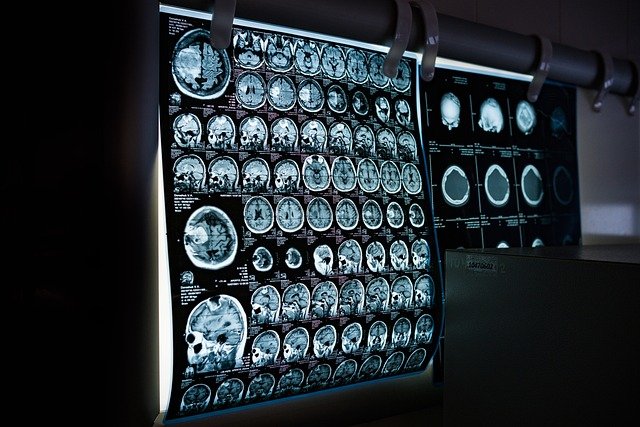Nursing Degree 2027 #5137
Nursing degrees open doors to diverse healthcare careers. Explore program types, admission requirements, and core study areas. Understand how each educational path equips you with the skills and knowledge needed for various roles within the nursing profession.

Evolving Nursing Degree Requirements for 2027
The nursing degree requirements projected for 2027 reflect growing complexity in healthcare delivery and increasing professional expectations. Most entry-level nursing positions will continue to require at minimum a Bachelor of Science in Nursing (BSN), with many specialized roles demanding advanced degrees. Core prerequisites typically include foundational sciences like anatomy, physiology, microbiology, and chemistry, along with general education requirements. However, by 2027, programs are expected to implement enhanced requirements including:
-
Advanced technology proficiency assessments prior to admission
-
Interprofessional education experiences
-
Population health and social determinants coursework
-
Higher clinical hours requirements (typically 900+ hours)
-
Cultural competency development
-
Enhanced simulation-based learning experiences
Programs are increasingly emphasizing holistic admissions processes that consider not only academic performance but also personal attributes, diverse experiences, and demonstrated commitment to healthcare values. These comprehensive approaches aim to build nursing cohorts capable of addressing the complex healthcare needs of diverse populations.
Comprehensive Nursing Curriculum Overview for Future Practitioners
The nursing curriculum overview for 2027 programs reveals significant evolution from traditional models. While core clinical training remains central, curriculum designers are incorporating emerging healthcare priorities and technologies. Modern nursing education balances hands-on skills development with conceptual understanding across several domains:
The first two years typically focus on foundational knowledge including human biology, pharmacology, pathophysiology, and basic nursing interventions. Advanced clinical reasoning and specialized practice are emphasized in upper-level coursework. Emerging curriculum elements include:
-
Artificial intelligence and healthcare informatics integration
-
Virtual care delivery methods and telehealth protocols
-
Climate change impacts on population health
-
Genomics and personalized medicine approaches
-
Enhanced mental health training across all specialties
-
Disaster preparedness and pandemic response
These programs increasingly utilize hybrid learning models that combine traditional classroom instruction with virtual simulation, remote clinical experiences, and technology-enhanced assessments. Many programs are adopting competency-based approaches that allow students to progress once mastery is demonstrated rather than adhering strictly to semester-based timelines.
Expanded Nursing Career Opportunities Through Specialized Education
Nursing career opportunities continue to diversify, with 2027 graduates entering a field that extends far beyond traditional hospital settings. The Bureau of Labor Statistics consistently projects nursing job growth exceeding most other occupations, with particular demand in specialized areas. Emerging career pathways for nursing graduates include:
-
Virtual care coordinators managing remote patient monitoring
-
Healthcare sustainability officers developing environmentally responsible practices
-
Informatics specialists designing and implementing healthcare technology
-
Population health managers addressing community-wide health initiatives
-
Patient navigation specialists coordinating complex care journeys
-
Global health nursing consultants addressing international health challenges
Advanced practice roles like Nurse Practitioners, Certified Registered Nurse Anesthetists, and Clinical Nurse Specialists continue experiencing significant demand growth and scope expansion. Many programs are developing specialized tracks that prepare students for these high-demand areas while creating stackable credential pathways that allow nurses to continue their education while working.
Investment in Nursing Education: Cost Considerations for 2027
Understanding the financial investment required for nursing education helps prospective students plan effectively for their career journey. By 2027, nursing education costs are expected to evolve significantly based on program structure, location, and institutional type. Current trends suggest several important financial considerations:
| Program Type | Average Annual Tuition (2027 Projected) | Total Program Cost Estimate | ROI Timeline |
|---|---|---|---|
| Associate Degree (ADN) | $8,000-$25,000 | $16,000-$50,000 | 1-2 years |
| Bachelor’s (BSN) | $15,000-$60,000 | $60,000-$240,000 | 3-5 years |
| Accelerated BSN | $40,000-$80,000 | $40,000-$80,000 | 2-4 years |
| Master’s (MSN) | $20,000-$70,000 | $40,000-$140,000 | 2-4 years |
| DNP Programs | $30,000-$100,000 | $60,000-$200,000 | 3-6 years |
Prices, rates, or cost estimates mentioned in this article are based on the latest available information but may change over time. Independent research is advised before making financial decisions.
Many 2027 programs are adopting innovative financing models including employer partnerships, income-share agreements, and public service loan forgiveness pathways. Students should also consider the substantial hidden costs including licensing exams, clinical supplies, technology requirements, and certification fees when planning their education budgets. Fortunately, nursing continues to offer strong return on educational investment, with many graduates recouping their costs within 2-5 years of employment.
Integrating 24/7 Nurse Support Systems in Education
A key innovation in 2027 nursing education is the integration of 24/7 nurse support systems that mirror real-world healthcare environments. These comprehensive support frameworks prepare students for the around-the-clock nature of healthcare delivery while providing valuable learning resources. Modern programs increasingly incorporate:
-
Virtual patient simulation platforms accessible at any hour
-
AI-powered clinical scenario generators for practice outside clinical settings
-
Peer mentorship networks spanning different time zones
-
Faculty support systems with extended availability
-
Mental health and wellness resources recognizing nursing education’s challenges
These 24/7 support structures recognize that nursing education no longer exists in traditional time boundaries, preparing students for the realities of modern healthcare delivery. Programs utilizing these approaches report higher student satisfaction, improved clinical confidence, and enhanced preparation for night shifts and variable scheduling common in healthcare settings.
Conclusion
The nursing degree landscape of 2027 reflects healthcare’s evolving needs through comprehensive preparation that balances technical skills with human-centered care approaches. Programs are embracing technology while maintaining nursing’s core commitment to compassionate patient care. For prospective students, understanding these educational trends provides valuable guidance for career planning. As healthcare continues its rapid evolution, nursing education stands ready to prepare practitioners who combine technical excellence with the essential human connection that defines the profession.
This article is for informational purposes only and should not be considered medical advice. Please consult a qualified healthcare professional for personalized guidance and treatment.




